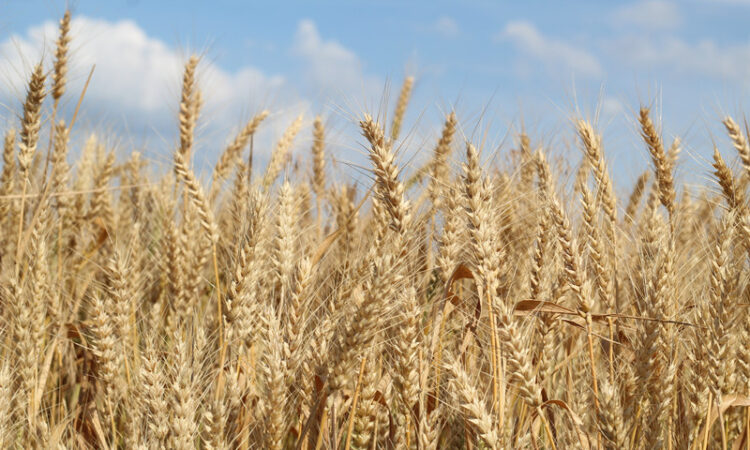
The EU Commission said on Monday (17 April) it was “not possible” under EU trade rules for Poland and Hungary to unilaterally ban Ukrainian grain and other agricultural products, adding it is working on further measures to mitigate collapsing prices in EU countries bordering Ukraine.
Over the weekend the two countries said temporary bans were necessary to protect their farming sectors from cheap imports.
On Monday (17 April), Slovakia joined Poland and Hungary by unilaterally halting imports of grain and other food products from Ukraine to protect its domestic farmers. Bulgaria has also said it is considering a ban.
The bloc lifted tariffs on Ukrainian grain last year to help transport it to the rest of the world amid Russia’s invasion. However, the exports have created an overflow and pushed down prices in central and eastern European countries.
Poland has said it wants to make sure that Ukrainian grain not destined for Poland does not stay in the country.
“The ultimate goal is not that the import ban will be in force indefinitely, but to ensure that grain from Ukraine, which is to be exported, goes [where it is headed],” Polish deputy foreign minister Pawel Jablonski told radio station RMF.
Hungary’s agriculture minister, István Nagy, said on Saturday that “in the absence of meaningful EU measures”, his country will temporarily ban the import of grain, oilseed and other agricultural aid from Ukraine.
The commission has said it was in talks with the member states and Ukraine, but is not yet able to say if Poland and the other EU countries are in breach of EU law on trade by introducing the ban.
“We are requesting further information from the relevant authorities to be able to assess the measures,” a commission spokesperson said on Monday.
“It is important to underline that trade policy is of EU exclusive competence and unilateral actions are not possible under EU trade policy,” the spokesperson said, adding that the executive is checking the legal basis and scope of the measures announced.
The commission is planning to extend the lifting of tariffs on Ukrainian goods beyond June this year.
Hungary’s minister said the temporary ban lasts until the end of June, “which may be enough time to take meaningful and lasting EU measures, and to reconsider the full duty-free nature of Ukrainian goods,” he said according to MTI news agency.
Overwhelmed
Poland and four other countries, including Hungary, urged the commission in a letter last monthto take action, including providing EU funds to ensure that Ukrainian imports end up in African and Middle Eastern countries.
“If market distortions causing damage to farmers in our countries cannot be eliminated by other means, we ask the commission to put in place appropriate procedures to reintroduce tariffs and quotas on imports from Ukraine,” the leaders of the five EU countries told commission president Ursula von der Leyen in the letter.
Polish agriculture minister Henryk Kowalczyk resigned from his post earlier this month, which coincided with a state visitfrom Ukrainian president Volodymyr Zelensky to Warsaw.
The commission has mobilised €56m from the EU budget to help Poland, Bulgaria, and Romania cope with increased imports of cereals and oilseeds coming from neighbouring Ukraine.
The bulk of the EU aid, €30m, is destined for Poland, while Bulgaria and Romania was slated to get get €17m and €10m, respectively. The money itself was distributed by the member state governments.
The commission is now discussing a second such compensation package and plans to put it forward in the next days, which will have to be adopted by member states. It did not provide details of how much funding it plans to include in the second package.
Storage capacity
Some of the imports coming in from the so-called solidarity lanes, routes created by the EU to help Ukraine export its products to bordering EU countries, have ended up staying in central Europe — mainly because of logistical bottlenecks.
The solidarity lanes and the Black Sea Grain Initiative, a safe transportation route of grain and foodstuffs from Ukrainian ports which is set to expire in mid-May, have contributed to lowering prices globally.
“Since its first exports, the solidarity lanes have been able to unblock around 29 million metric tonnes of grain to be exported in the EU by road, rail or vessels using the Danube delta,” Farm Europe, a think tank on rural economies, said in a statement.
“In the framework of the solidarity lanes, the EU market has opened to Ukrainian imports, resulting in an unprecedented flow of Ukrainians products to eastern Europe,” Farm Europe’s assessment said, adding that “this sudden and significant influx has created tension locally, as large quantities of grain flown in areas with limited storage capacities (compared to the new needs) and high logistic challenges to be overcome to export them while at the same time storing and transporting local productions”.
Kyiv said on Monday that the UN-brokered deal allowing the safe Black Sea export of Ukrainian grain to help ease global food shortages, was in danger of “shutdown” after Russia blocked inspections of participating ships in Turkish waters.
Poland (a staunch supporter of Kyiv) and Ukraine have been in talks on transit, and make sure that Ukrainian products destined for African and Middle Eastern countries are not sold inside Poland.
Ukrainian agriculture minister Mykola Solskyi said over the weekend that he hopes the issue with Poland would be resolved this week.






